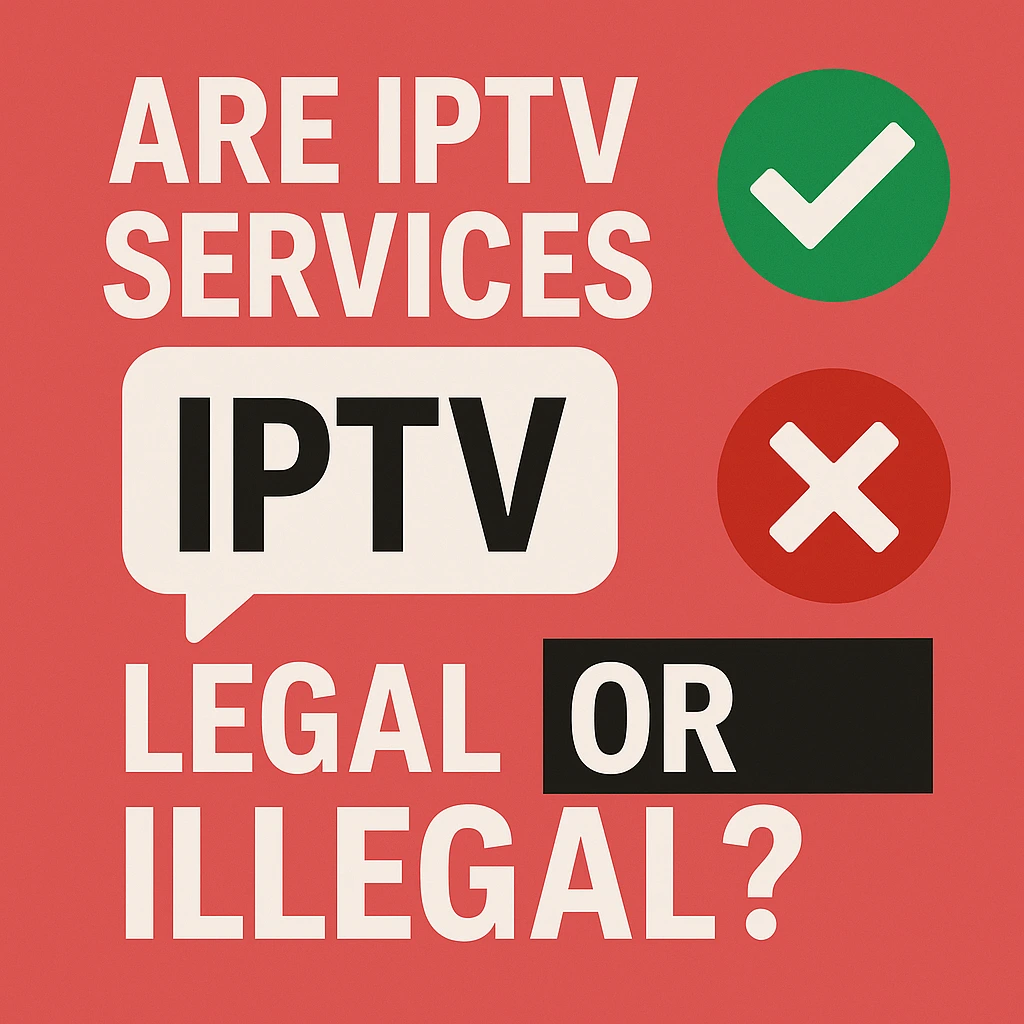Are Iptv Services Legal or Ilegal?
I do apologize for what has happened. I know that I scheduled these lives earlier before, but we had issues with YouTube and the company here. There was a power outage, so we couldn’t actually start on time. To make matters worse, because of the whole rush I had with the computer trying to connect somewhere else, I did not have my microphone properly set up—so there was no audio. I already made a live about thirty minutes ago, and when I tried to replay it—I know that this is a newbie mistake, but you know, stuff like this happens—there was no audio.
So, well, I’m back again trying to show you a new live. We’re going to be talking about IPTVs. I know a lot of people actually are curious about what IPTV is. We made our live from Spanish a couple of weeks ago, and it was very popular. A lot of people actually watched the stream, and we’re trying now to make it in English for our English-speaking audience Are Iptv Services.
What Is an IPTV?
First of all—what is an IPTV? IPTV stands for Internet Protocol Television. What this means, in a general sort of way, is that you will be able to see what you have on your cable TV over the internet. It’s just a fancier name for that. Instead of having a physical cable connection or satellite receiver, IPTV takes all of that information—multimedia data, metadata—and displays it as if you were watching cable, but on your computer or any device connected to the internet.
So, what you’re doing is just changing the delivery method. It’s no longer cable or satellite—it’s internet-based. That’s why it’s called Internet Protocol Television.
IPTV vs Streaming
Many confuse IPTV with streaming. While they are related, they’re not the same. Streaming means that the content is stored somewhere online, and you access it using a player or device. When you hit play, your device fetches that content in real time from the server without saving it permanently on your computer. It only stores a small temporary part through cache.
IPTV is a type of streaming media, and usually, it comes in two forms:
-
Live content – broadcasts are delivered live as they happen.
-
On-demand – you select content to watch when you want.
Some IPTV services are free, others are paid, and many popular services blend both live and on-demand content.
How IPTV Works
It all depends on internet-based servers and requires a stable internet connection. Servers store and distribute multimedia data to users in real time. Services like Amazon Prime, for example, act as a hybrid: they offer both live sports and on-demand movies, making them similar to IPTV systems.
Many modern platforms use IPTV-style formats because users enjoy pressing play and watching content immediately rather than spending time searching for titles.
Legal Aspects of IPTV
Now, the big question—is IPTV legal or not?
The answer: it depends on your location.
For example, in the U.S., the FCC regulates TV broadcasts. In Panama, a similar agency called ASEP or DSM oversees the media. Broadcasting requires licenses—whether over-the-air, cable, or satellite. IPTV, however, is not considered traditional television, so it falls under different legal jurisdictions, including internet regulations and copyright laws.
If an IPTV provider has a legal agreement with content owners, then it’s legal. Services like Netflix, YouTube TV, Pluto TV, and Sling are legitimate because they pay for distribution rights or produce original content.
Public IPTV Lists – Are They Legal?
In Panama, for example, local laws state that sharing a link to already public content hosted by its owner is not illegal. If a local TV station publicly streams its show and you include the official link in your IPTV list, it’s permitted. You are not violating copyright since you are not hosting or modifying the original content.
However, re-hosting copyrighted streams or redistributing paid service content without permission is illegal. An example includes capturing Sling TV content and selling it through your own IPTV system. That violates copyright and distribution laws.
A Real Case: Why You Should Be Cautious
A known IPTV entrepreneur, Omar, ran a popular IPTV platform called Gears Reloaded. He charged users around $20/month, serving over 100,000 subscribers—earning nearly $2 million/month. Unfortunately, he was storing copyrighted content without permission and reselling it. This led to an FBI raid, copyright infringement lawsuits, and tax evasion charges.
Despite being clever and popular, the lack of licensing caused his downfall.
How to Stay Safe
-
-
Avoid shady IPTV sellers.
-
Look for legal services like Pluto TV, Crackle, Sling, and YouTube TV.
-
Use public IPTV lists that link to original sources only.
-
Don’t host or distribute content without permission.
-
Final Thoughts
We do not review IPTV services anymore due to copyright strikes from YouTube. Some IPTV providers looked legit but turned out otherwise, causing our channel to be penalized.
Please stay safe and legal. If an IPTV seems “too good to be true,” it probably is. Explore free, public IPTV lists from trusted sources. They’re safer, and you don’t risk being part of something illegal.
We hope you enjoyed this livestream/article. Feel free to drop any questions in the comments, and don’t forget to subscribe.
